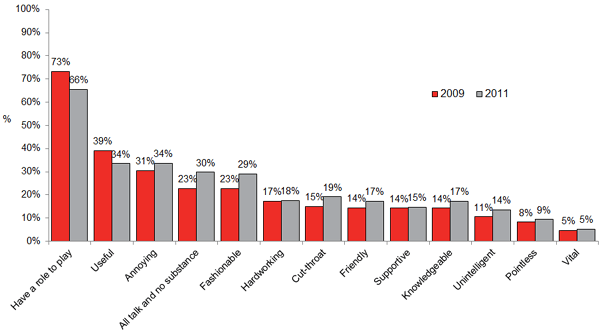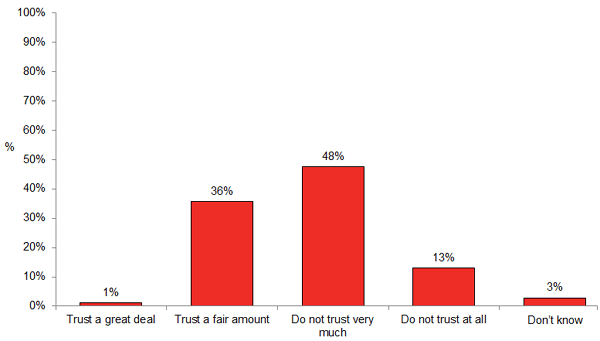Last week, we discussed research carried out by YouGov into what journalists think of PR agencies. This week we look at how they think PR agencies have improved and how they have worsened.
Of those journalists surveyed who deal with PR agencies, 9 per cent think that they have improved in the last 18 months. This compares with 14 per cent who think they have got worse.
The main complaints are that agencies put too much spin on stories (69 per cent of those who think agencies have got worse believe this), are less thorough in checking their facts (58 per cent agreed with this), and focus less on facts altogether (51 per cent agreed with this). As for the positives, the main reason journalists gave for this higher impression was that agencies “have a better understanding of business topics”.
Thoughts on PR agencies (all influentials)In your opinion which, if any, of the following best describe PR and communications agencies in general?

Journalists might not agree whether PR agencies have got better or worse in the last year, but whatever their opinion, it is clear that they prefer stories that have less spin and focus more on facts. Facts that have been checked thoroughly.
Trust in agenciesTo what extent, if at all, do you trust PR and communications agencies to be truthful?

Freelance press and PR consultant James Davis has worked on both sides of the fence, and believes that PROs must remember that journalists are not in the business of marketing, so they are always focused on information, not publicity. He says: “Whatever their specialism, journalists look for ‘news’, for a story.”
Davis claims journalists dislike lazy public relations workmanship, and gives these examples: “PROs who incessantly send press releases that fail to provide the basic: who, what, when, why, where and how. And those who try to prevent them from finding answers to these questions. Far too many PROs mistake promotional puff or advertising for ‘news’ or fail to create an adequate ‘news hook’, dispensing release after release at the touch of a button.”
Davis also points out that In most sectors, PROs outnumber journalists three to one, and this means that the first hour of a journalist’s day is spent deleting releases, often not even sent to the correct person. His advice is that if you don’t have a story don’t send it (or work harder to find a suitable hook): “You diminish your ability to attract attention when you do have something to say. When you do, target properly.”
But let’s not heap all the blame on PROs here, as Davis says, “Lazy workmanship permeates journalism too. Those who telephone PROs expecting you to do their research or desperately seek derogatory news against the industry you are employed to protect and promote.”
MethodologyThe survey was completed by members of the YouGovStone Think Tank of over 4,000 influential people in the UK. The panel members include senior business people, journalists, academics, politicians, directors of charities, health practitioners and other opinion leaders. Around a fifth of panel members completed each survey using YouGov’s bespoke online survey system. The sub-group of those who have PR responsibility was drawn from right across the board of survey respondents. The survey took place in April 2011 and the charts above are based on journalist responses only.
PR Masterclass: The Intersection of PR and GEO
Wednesday 25th February, both virtual and in person tickets are available.
PR MasterclassIf you enjoyed this article, sign up for free to our twice weekly editorial alert.
We have six email alerts in total - covering ESG, internal comms, PR jobs and events. Enter your email address below to find out more:








